Travel Tips and Stories of Kuranda in Australia
Find inspiration with pictures, tips and stories of Kuranda from travelers sharing their experiences
Book your trip to Kuranda and remunerate who inspired you
Travel guide of Kuranda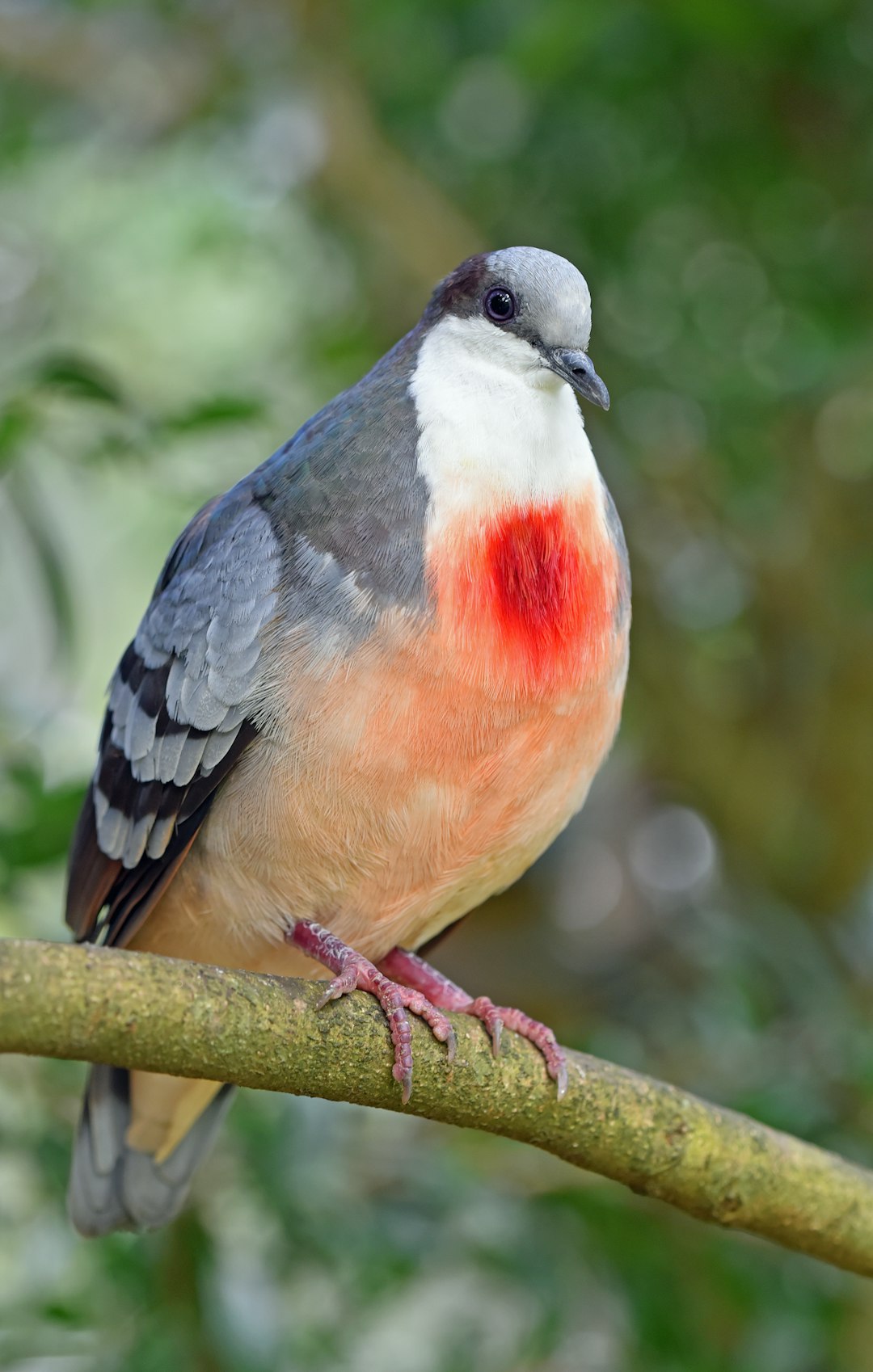
Find inspiration with pictures, tips and stories of Kuranda from travelers sharing their experiences
Book your trip to Kuranda and remunerate who inspired you
Travel guide of Kuranda
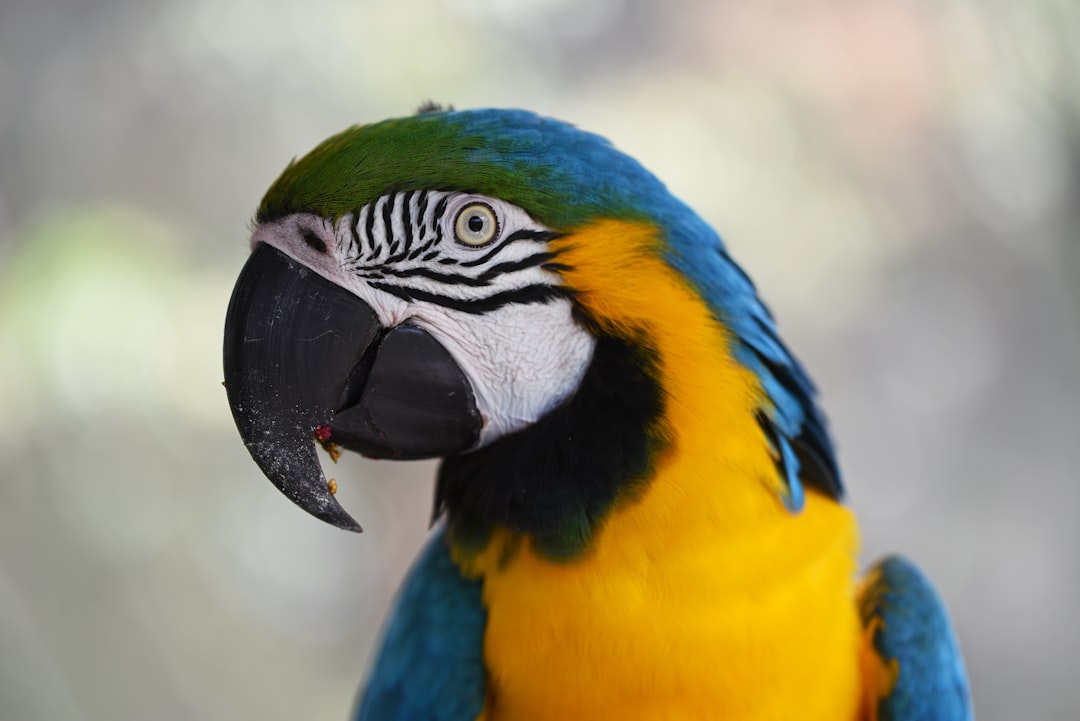
This gorgeous bird was feeding at Kuranda bird world Australia. I like the contrast between the bold primary colours of the bird, and the softer pastel background.

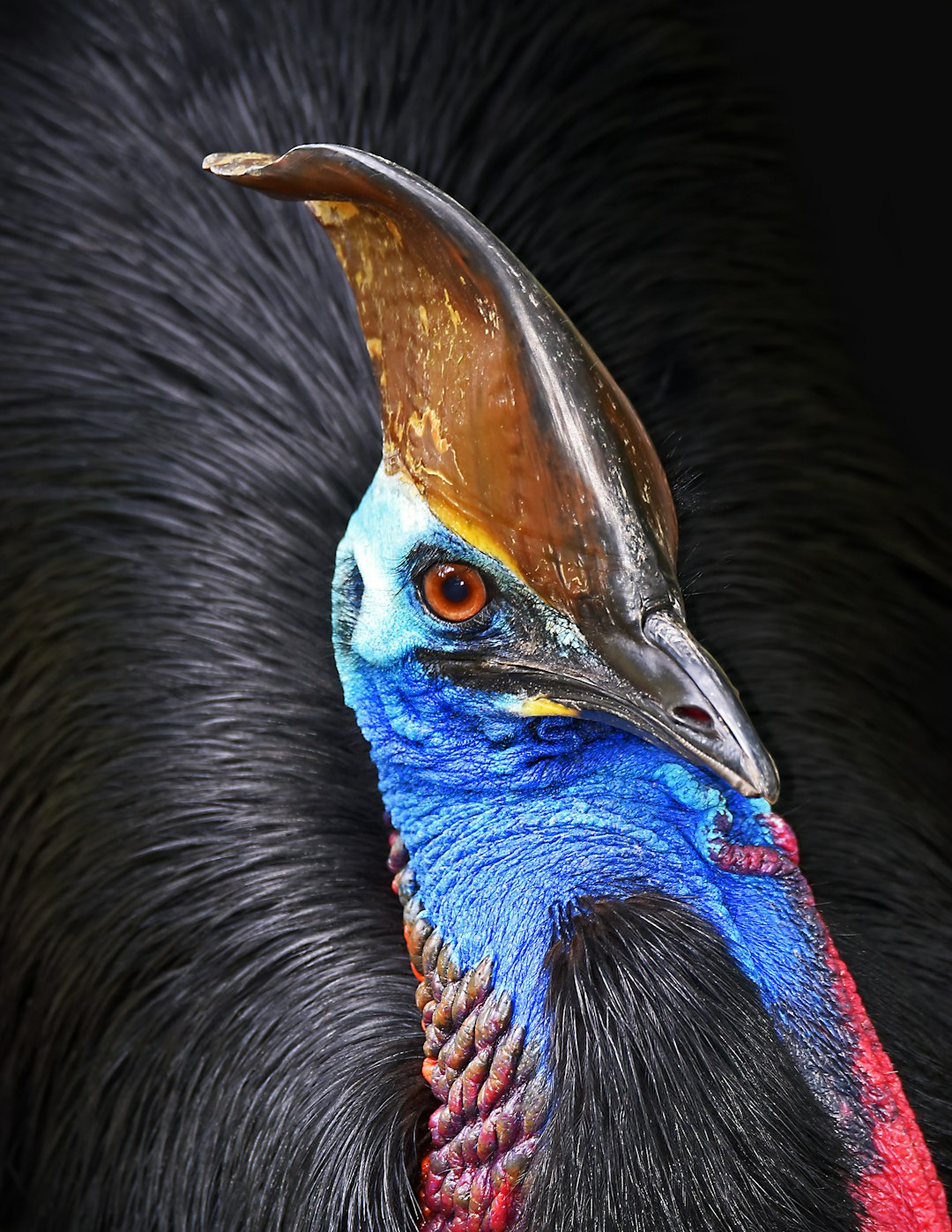
Cassowary birds are very large birds that look they would not be out of place with dinosaurs. They are potentially dangerous and have a powerful kick which can kill you. This bird at Kuranda Birdworld finally struck a nice pose for me.

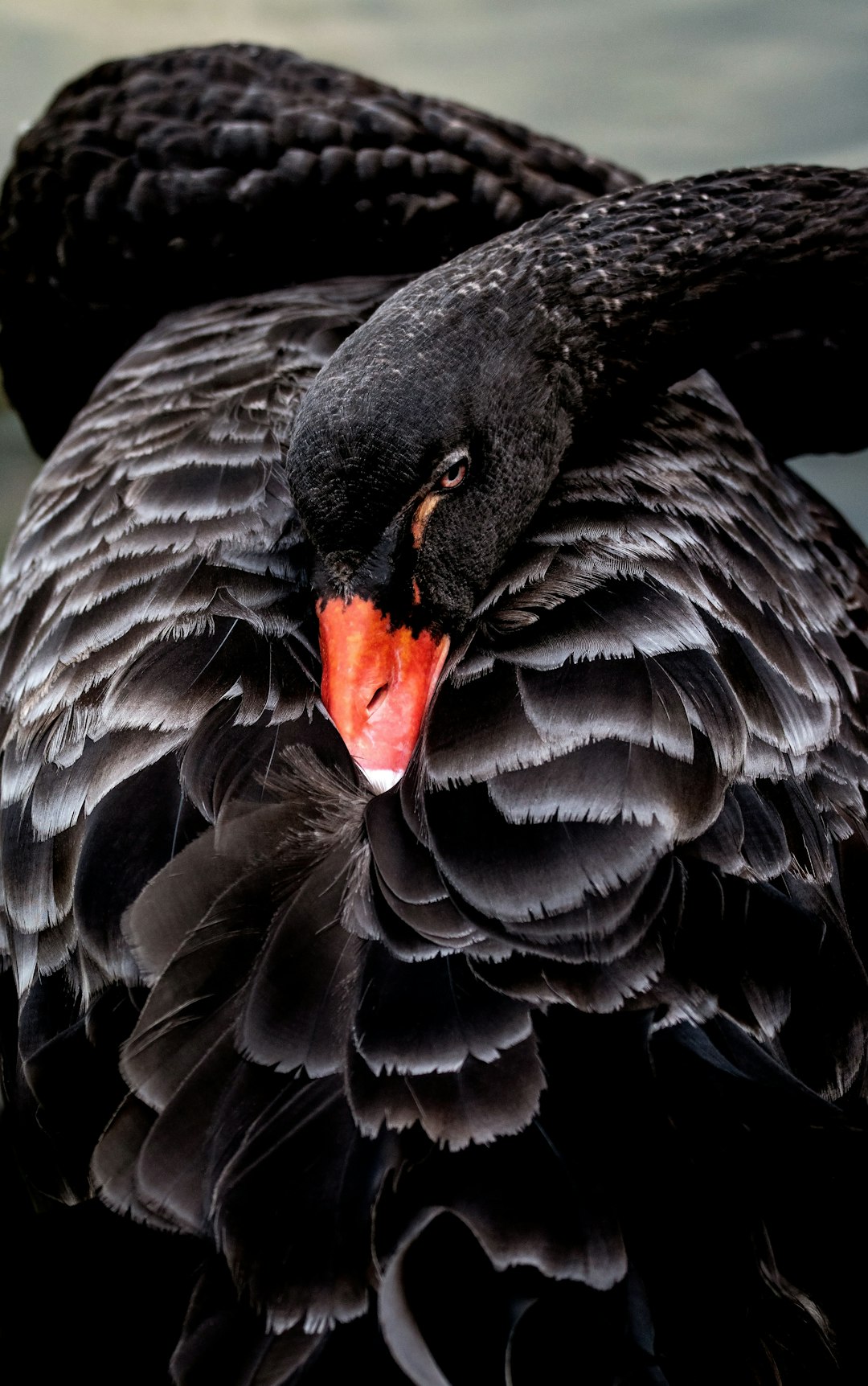
Black Swan. A resting Black Swan at Birdworld, Kuranda, Australia. These beautiful birds are native to SE and SW Australia, and have been introduced to New Zealand, England, Japan, China and Florida.

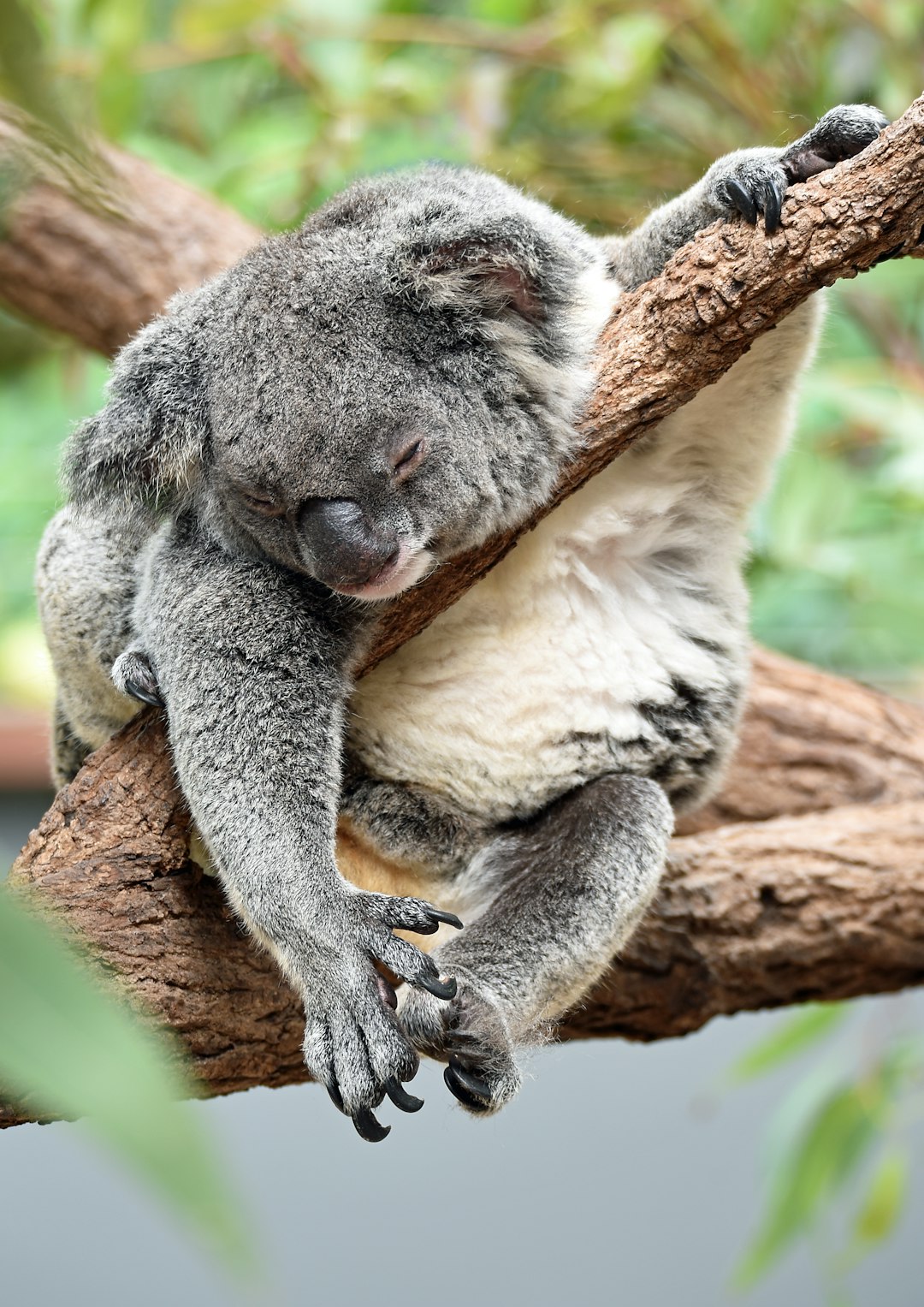
Time out. Time out for a koala means sleeping for 18 to 20 hours a day! They know how to relax! Photo taken at koala gardens, Kuranda, Australia.

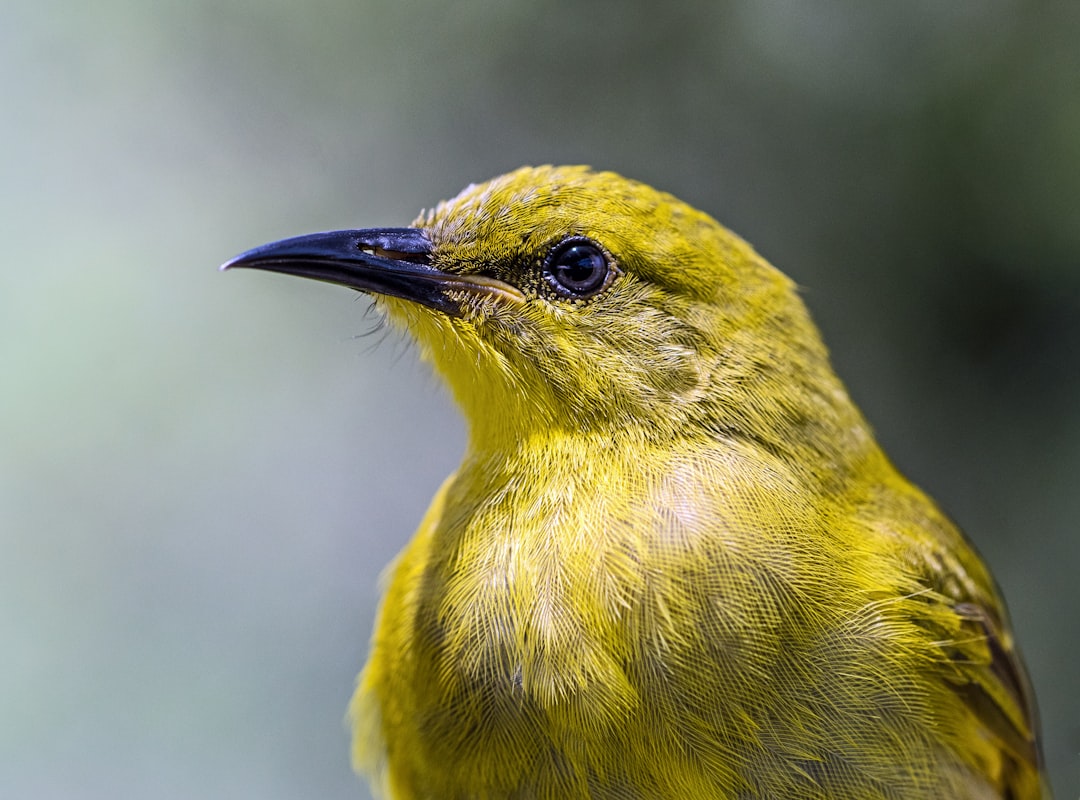
This Yellow Honeyeater at Kuranda Birdworld allowed me to get really close to photograph it. There are numerous Honeyeater bird species in Australia, which eat nectar and insects, They are active and intelligent, and important flower pollinators. They can easily be attracted to gardens if you grow the right plants.

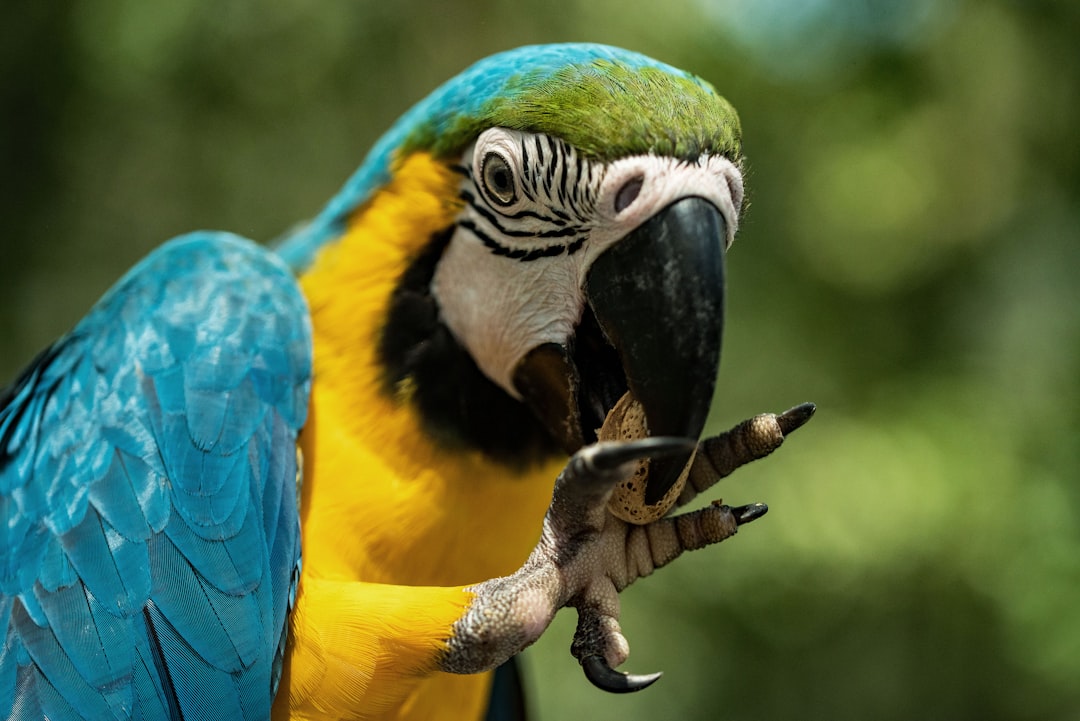
This blue and gold macaw took a while to get through the shell, and then dropped the nut onto the ground. I picked it up and gave it to back to the macaw, who treated the whole affair as if it was perfectly normally for humans to be running around doing errands for it.

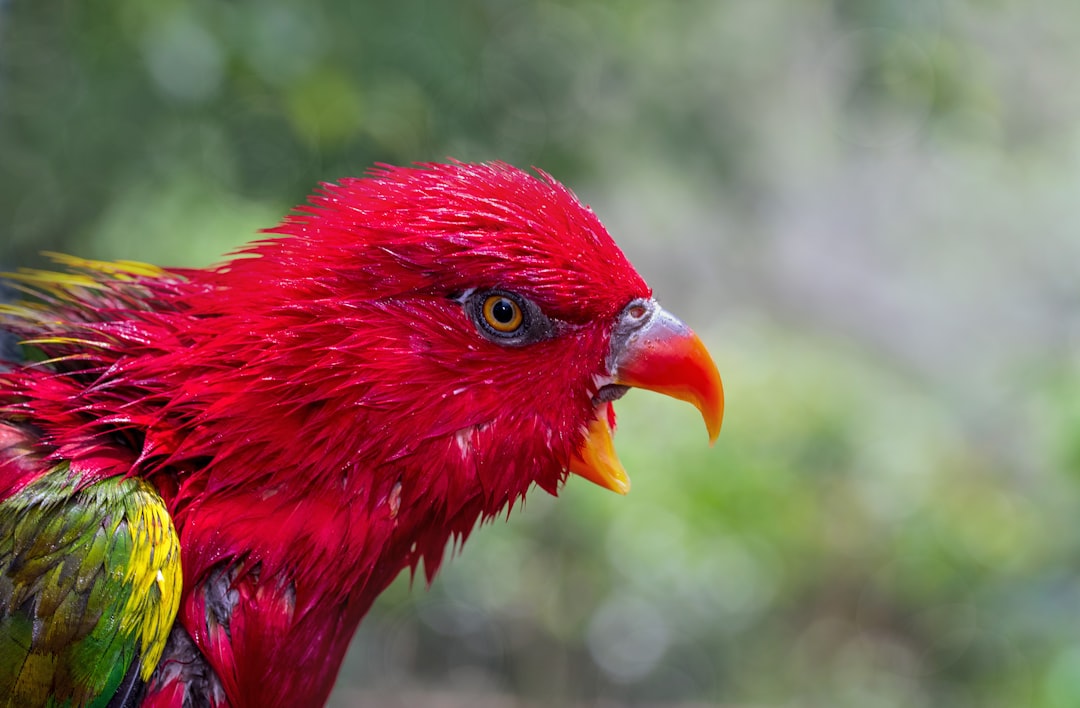
A Chattering Lory does some chattering after enjoying a bath. These birds are a type of parrot native to Papua New Guinea. This one was photographed at Birdworld Kuranda in Australia.


This amazingly colored bird was photographed at Birdworld in Kuranda, Australia. The colors are natural, and the Bleeding heart pigeon or dove is native to the islands of the Philippines.

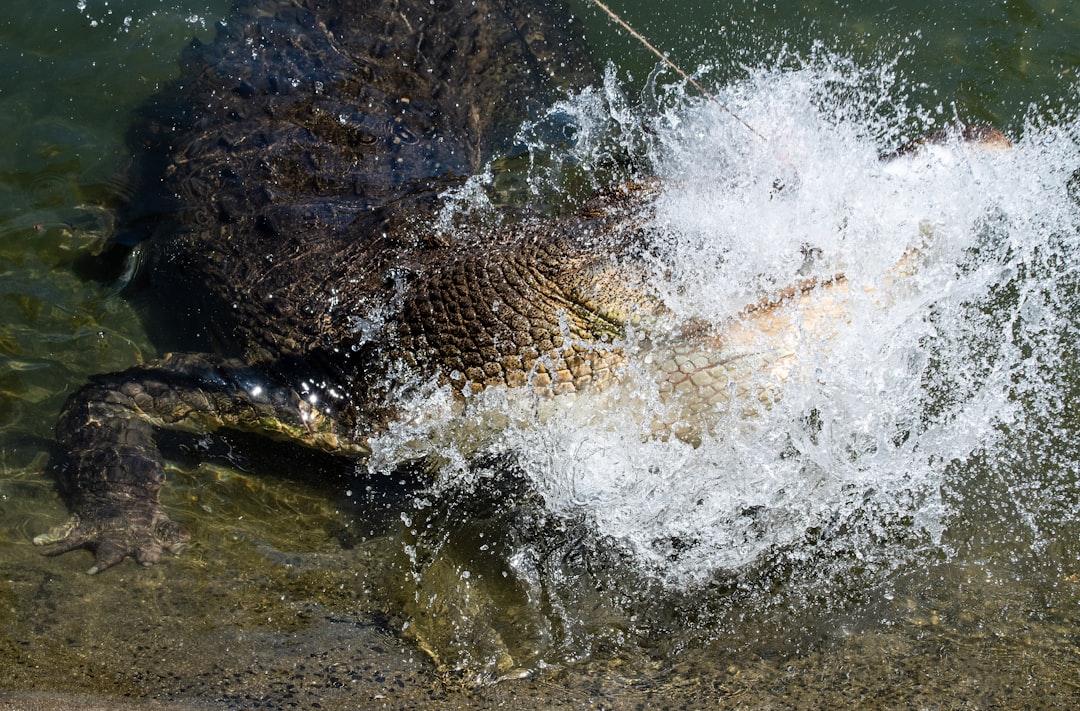
What happens when you lower a piece of chicken on a rope in front of a crocodile. Phoebe, one of the keepers, feeding the animals at RainForestStation Nature Park near Kuranda in Australia.

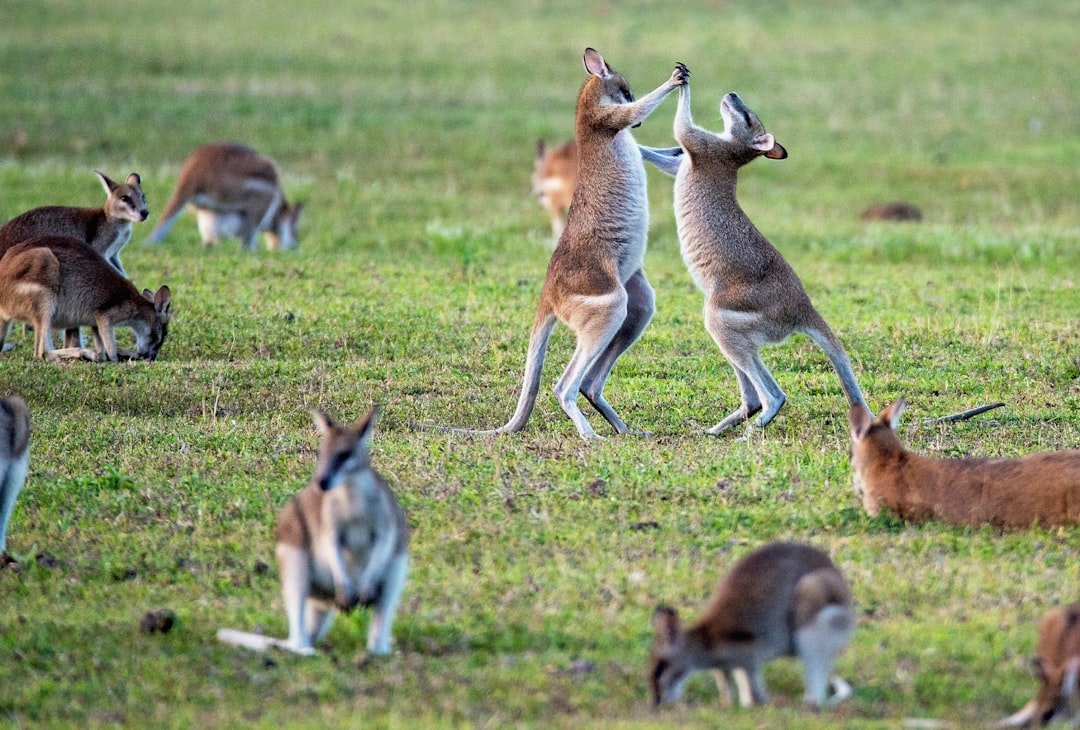
8 km from Kuranda
These two wild wallabies are actually testing each other’s strength, like an arm wrestle, but I like the photo because they look like they are dancing, perhaps a waltz. This species is known as the agile wallaby, and the photo is taken in North Queensland, Australia.

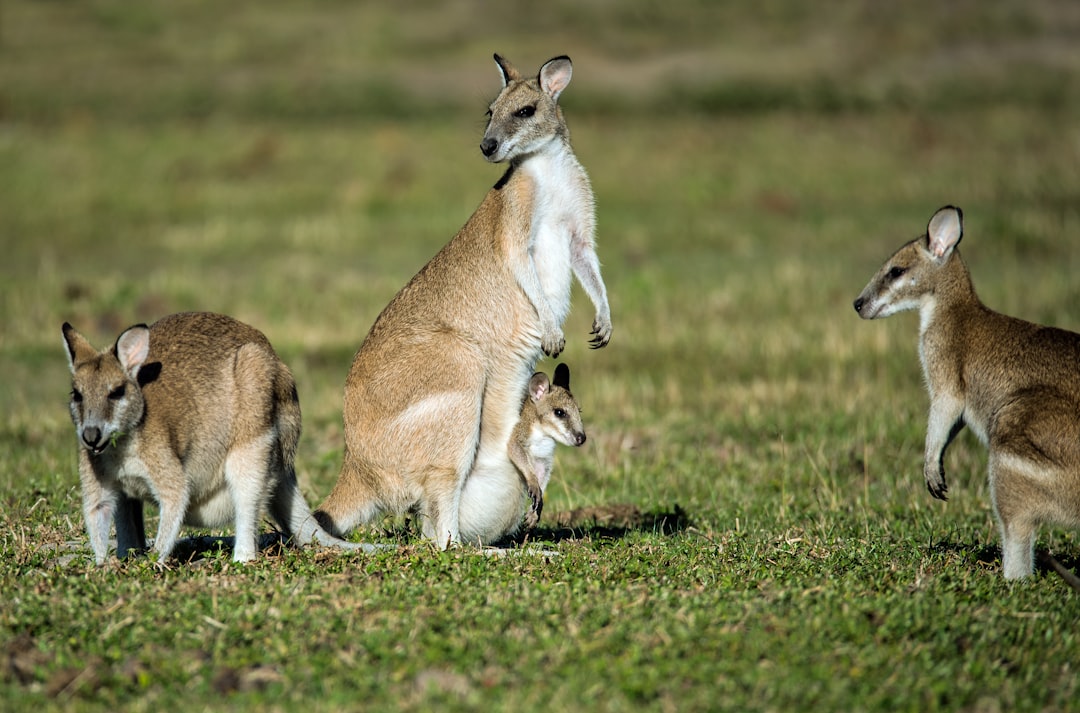
8 km from Kuranda
A baby wallaby looks out from the comfort of its mother’s pouch. These wallabies are called agile wallabies, and the photo was taken in North Queensland, Australia.

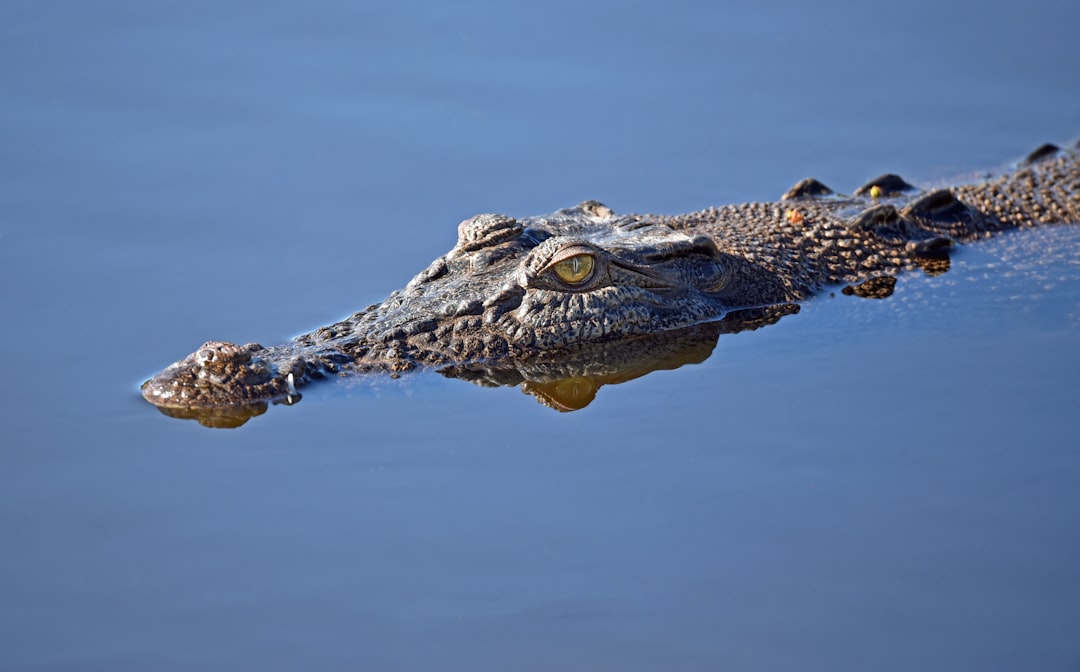
9 km from Kuranda
This 1.5 m crocodile swam across the Lake at Half Moon Bay golf club in Cairns Australia, to have a closer look at me. The photo is taken from about two metres away. The crocodile was too small to be likely to attack me, but we did have an eyeball to eyeball standoff for a minute or two. Unnerving.

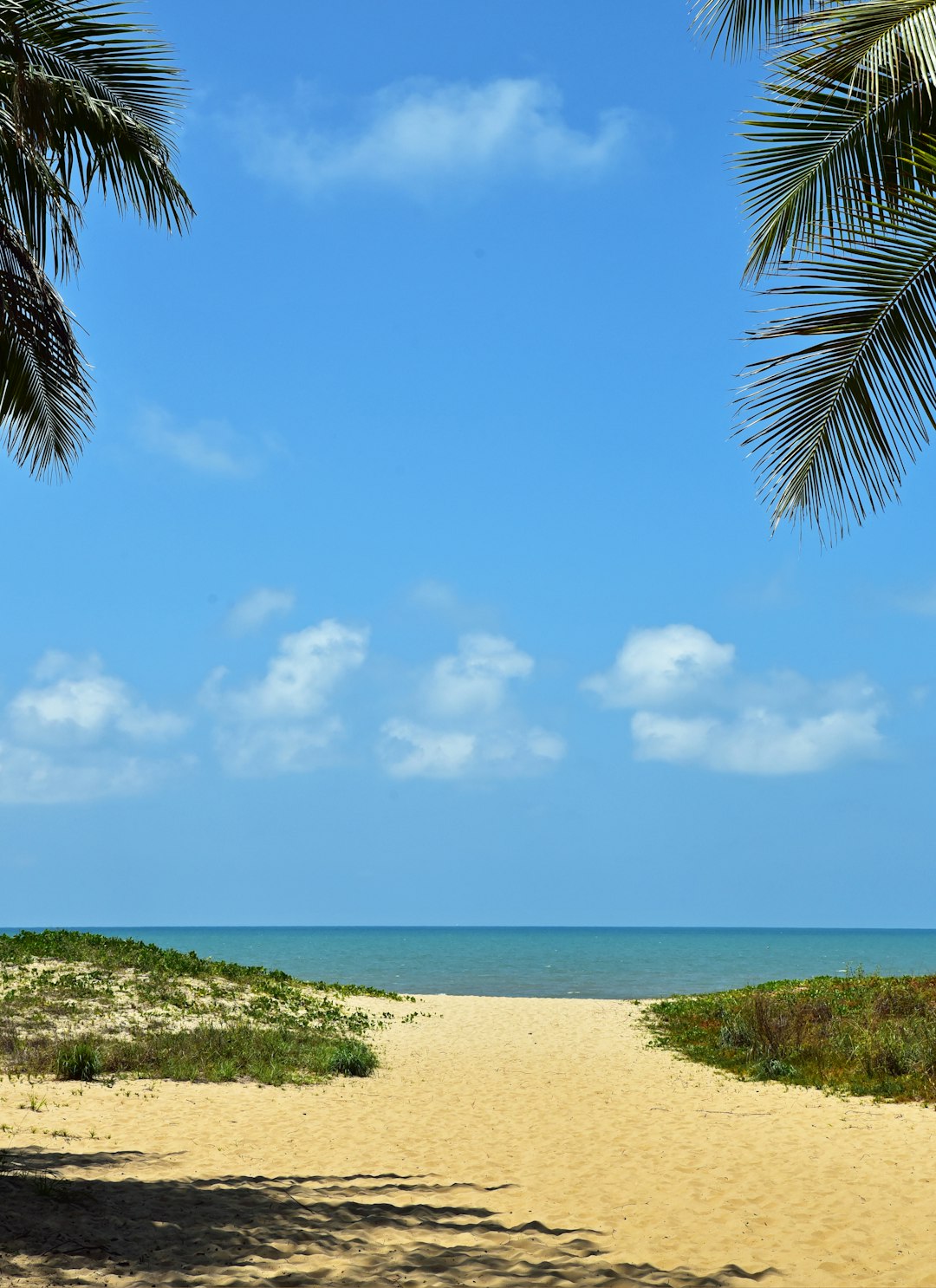
9 km from Kuranda
There is something exciting about going to the beach and when you arrive, seeing a path down to the beach and the sea. In this photo of a tropical beach near Cairns, Australia, I like the framing elements of the coconut palm fronds on both sides.

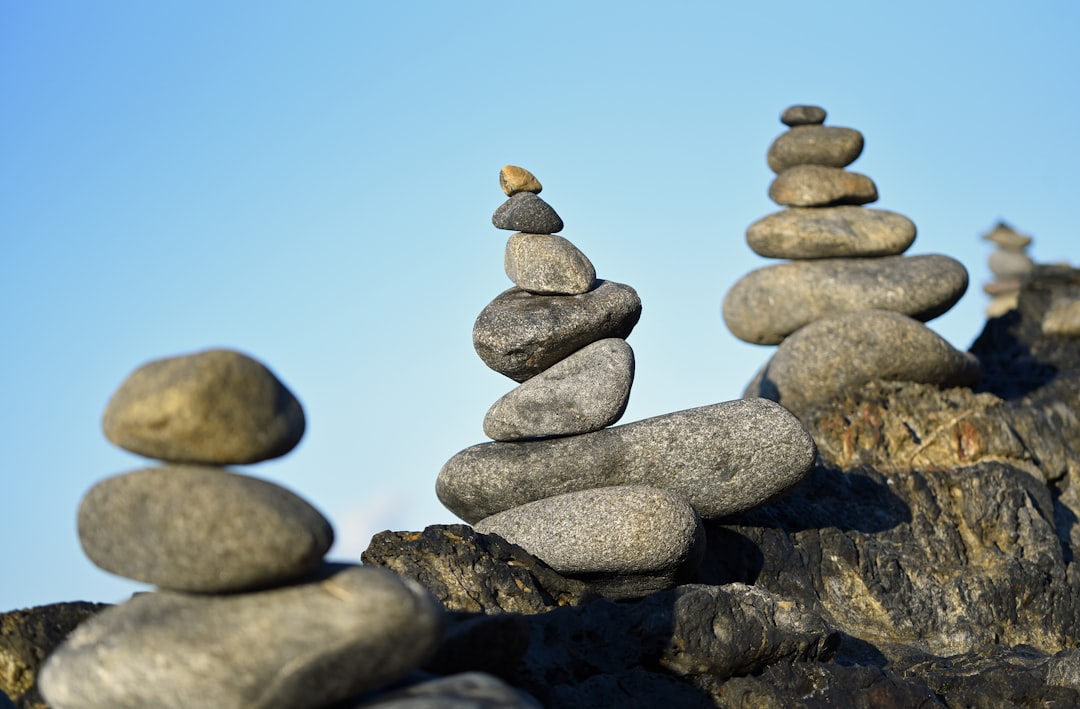
11 km from Kuranda
Balancing rocks is a fun family activity, and is popular in some parts of the world. The pile in the foreground is just begging to have more stones added to it. I enjoyed playing around with depth of field taking photos of these piles of pebbles.This popular site is next to the sea between Cairns and Port Douglas in Australia.

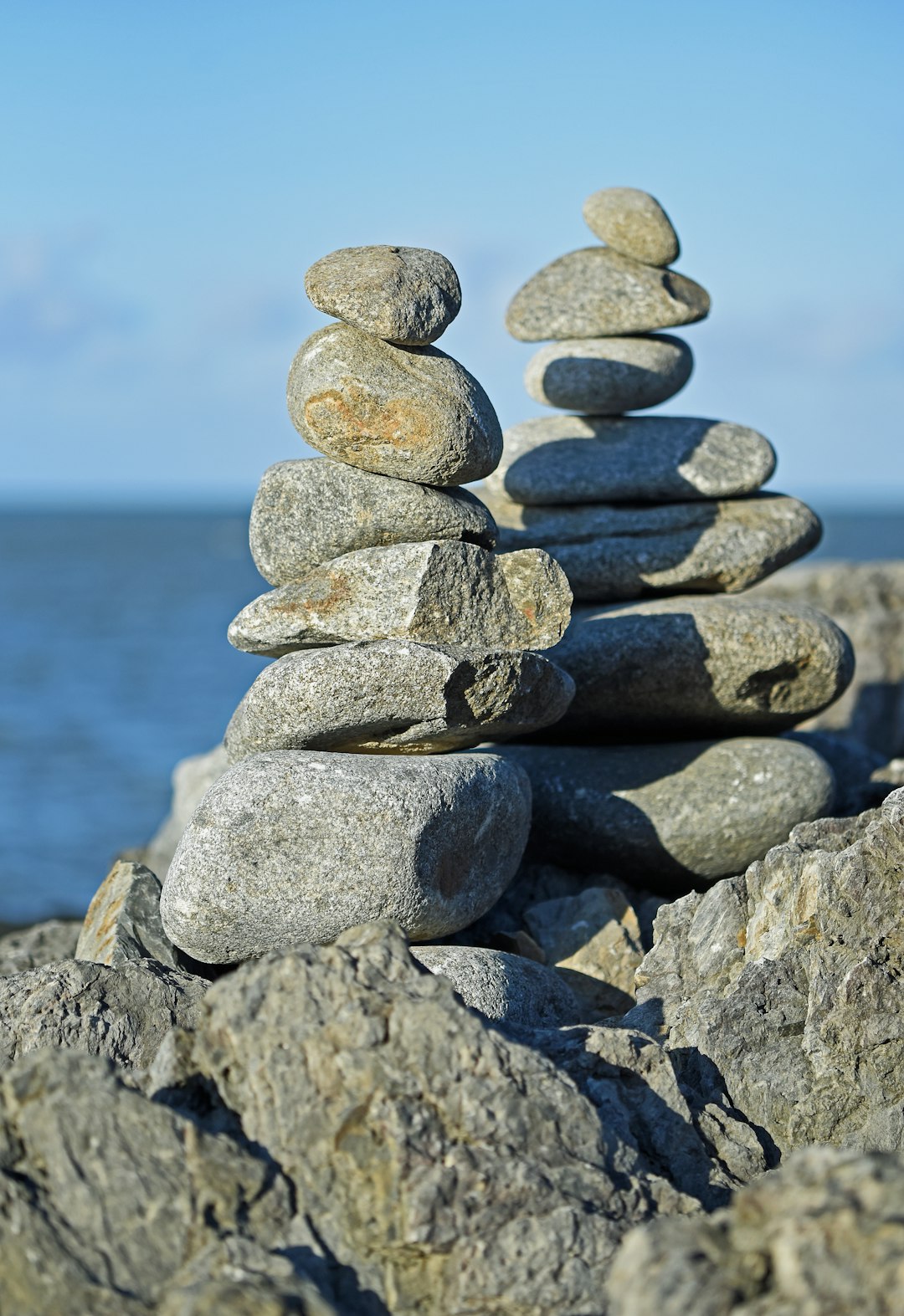
11 km from Kuranda
Balancing rocks on top of each other is popular with both adults and children in some parts of the world. This photo was taken in soft late afternoon light at a popular site for this on the Captain Cook highway between Cairns and Port Douglas in Australia.

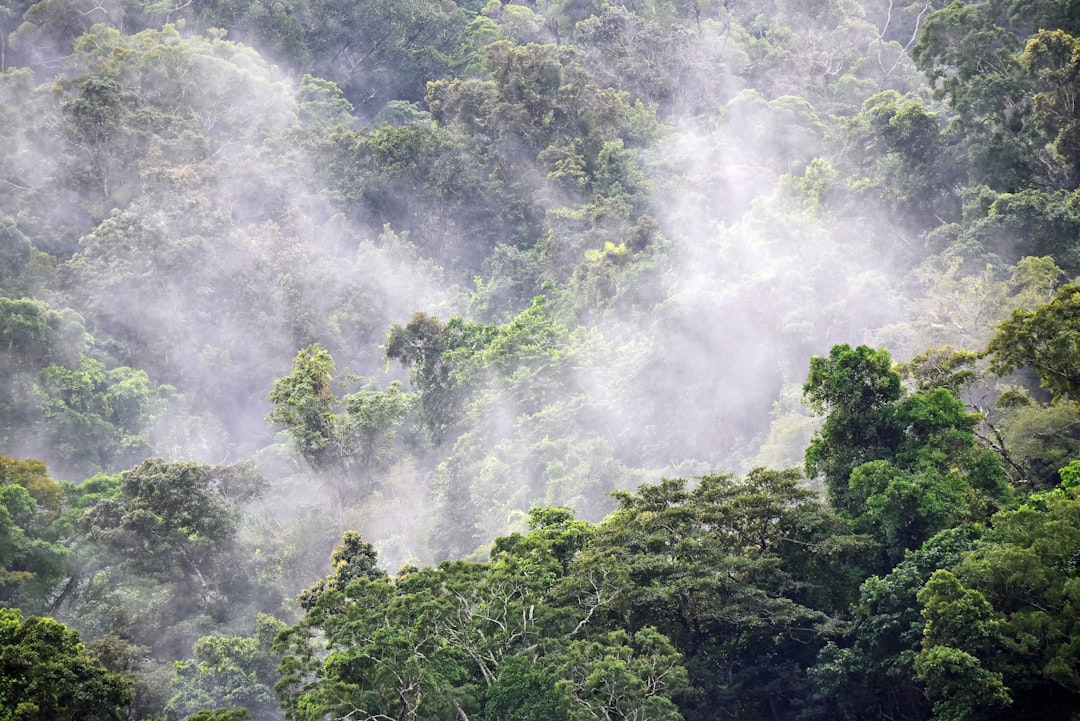
14 km from Kuranda
Rain makes rain forests, but rain forests also make rain. Billions of bacterial particles combine with transpired and evaporated moisture to form and seed clouds which then rain on the forests in a magical natural cycle. Photo taken in Mount Whitfield National Park, Cairns, Australia.

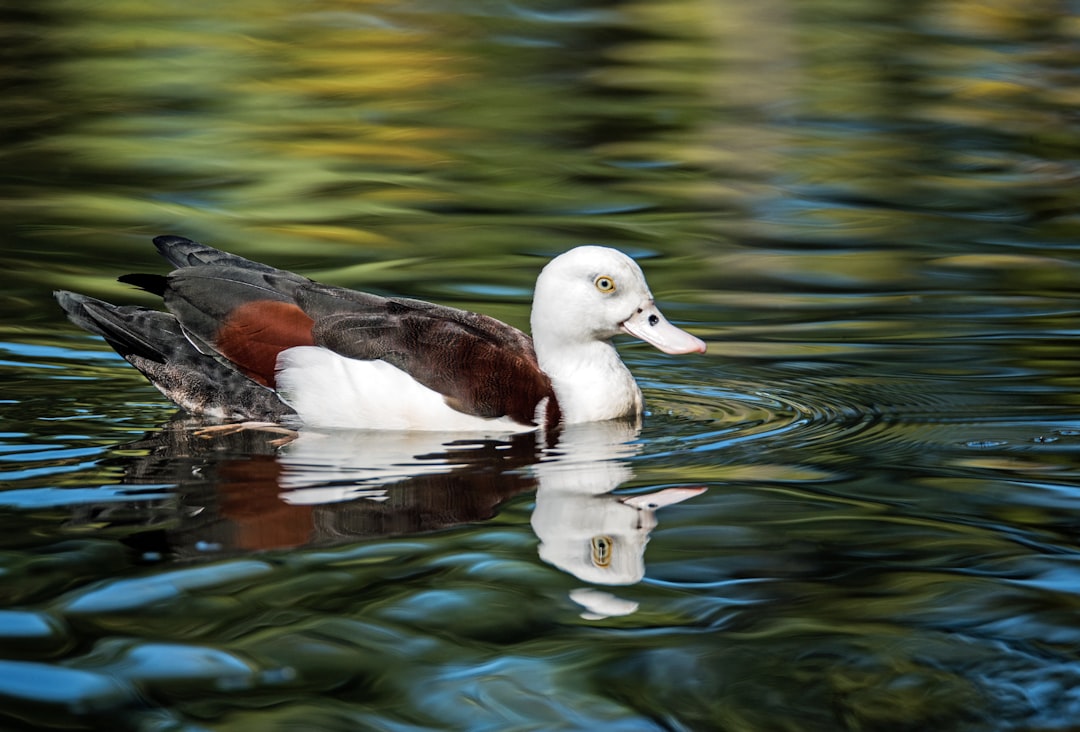
15 km from Kuranda
Radjah shelducks are a pretty type of duck found in Australia and New Guinea. This one is enjoying an early morning swim at Freshwater lake in Cairns Australia.

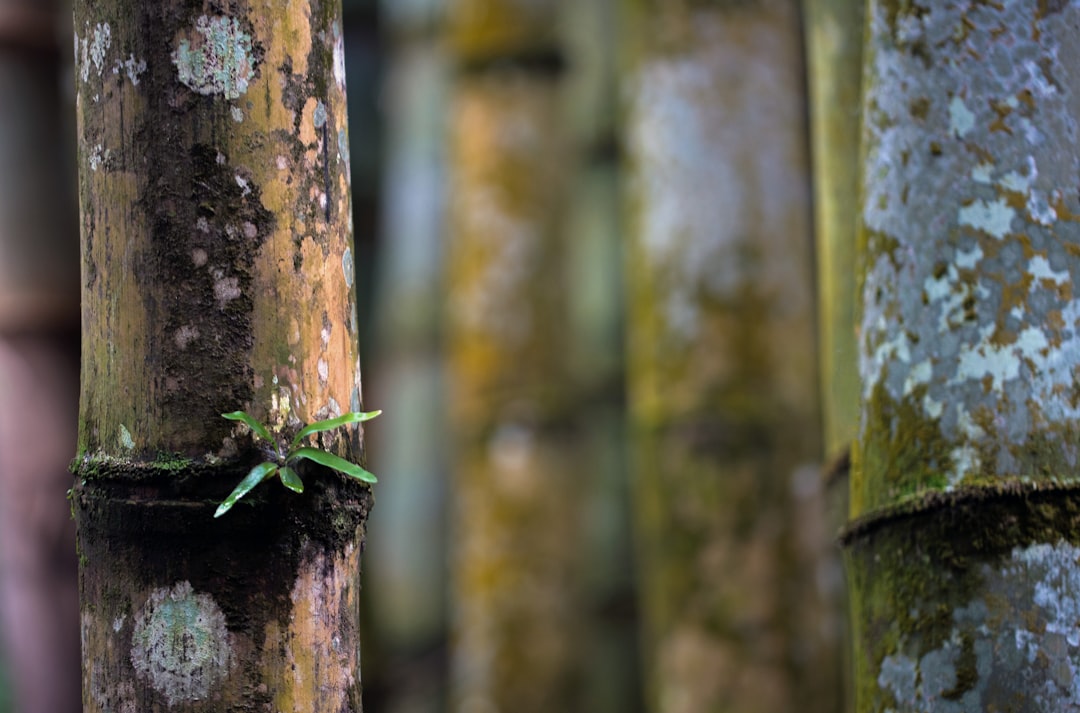
15 km from Kuranda
A small fern growing on a bamboo culm in the Cairns Botanic gardens Australia. I like the bokeh in this photo with the blurred bamboo in the background and the fern in focus in the foreground.

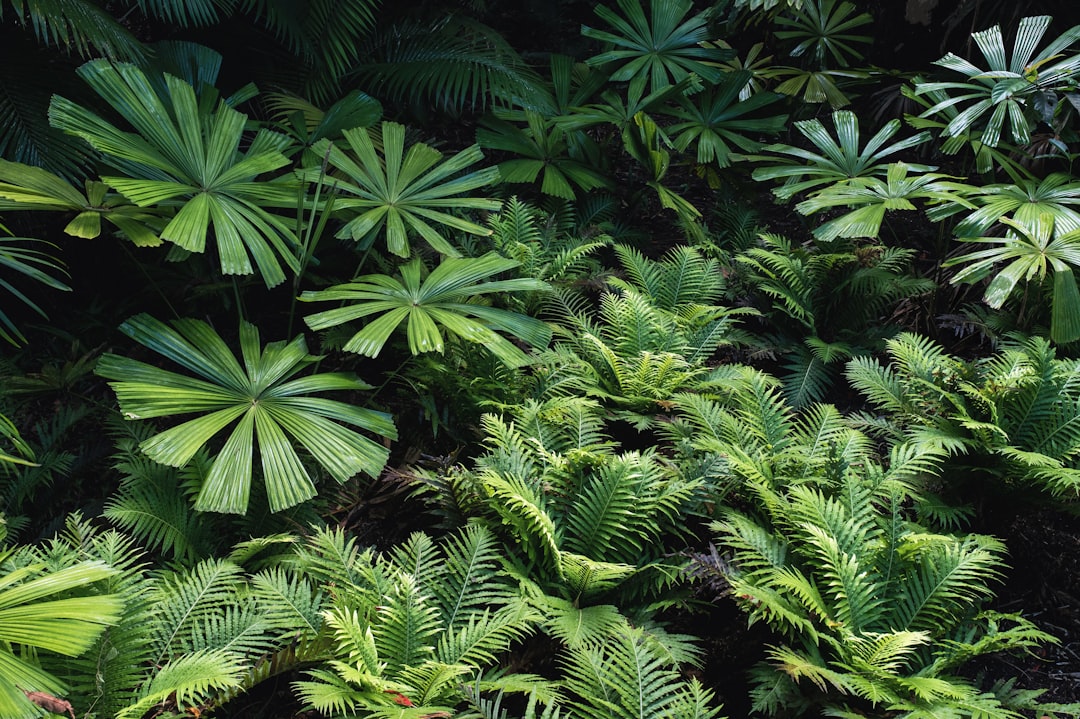
15 km from Kuranda
A lush planting of palms and ferns in the rain forest at the Cairns Botanic Gardens in Australia (Daintree Fan Palm Licuala ramsayi, and water fern Blechnum nudum).

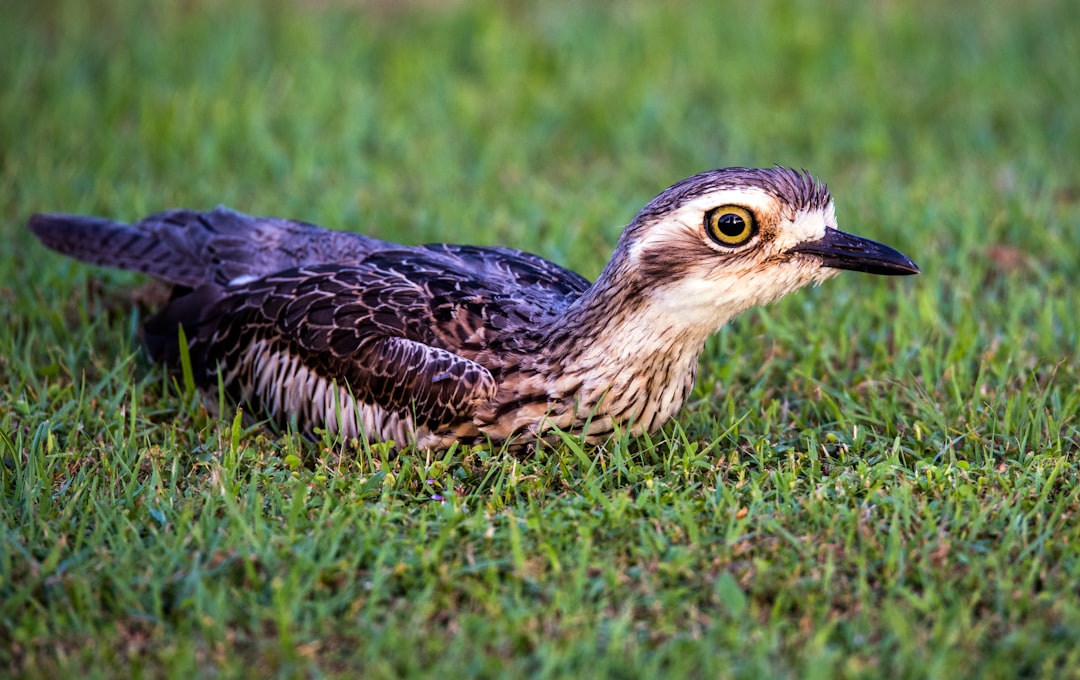
16 km from Kuranda
I like the way the soft late afternoon light illuminates the face of this bird. Bush stone-curlews are nocturnal, and their big eyes help them to catch insects at night. These birds are also extremely well camouflaged when lying on stones, or dead leaves and twigs, but easy to see here on a lawn.
